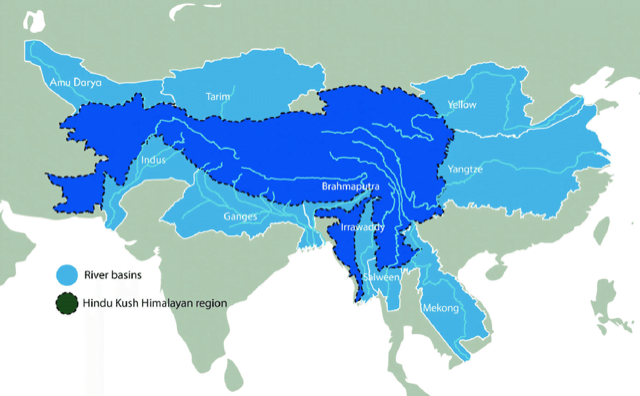UPSC Articles
UNDP Report on Hindu Kush Himalayan Mountains
Part of: GS Prelims and GS -III – Climate change; Conservation
In news
- According to UNDP (United Nations Development Programme) report, ‘Melting glaciers; Threatened livelihoods; Confronting climate change to save the Third pole’, the Hindu Kush Himalayan (HKH) mountain ranges could lose up to two-third of its ice by 2100.
- About 2 billion people may face food, water shortages by 2100.
- Glacier melting in HKH region is caused by:
- larger anthropogenic modifications of the atmosphere
- disruption in weather patterns and precipitation due to global warming
- changes in Glacier volume
- Unplanned urbanization
Impact
- Threatens climate as well as monsoon patterns
- It impacts 10 major river systems which help in agricultural activities, provide drinking water and hydro electricity production in the region
- socio-economic disruption and human displacement
Recommendation
- Shifting away from fossil fuel use in energy transport and other sectors
- Changing diets and agricultural practices to move to net zero emissions of greenhouse gases
- Improve data and information capacity building and early warning systems
Important value additions
- HKH extends over 8 countries – Afghanistan, Bhutan, Bangladesh, China, India Myanmar, Nepal and Pakistan
- It contains the world’s third largest storage of frozen water after Antarctica and Arctica
- It is also referred as the third pole of the world.

Pic courtesy: Researchgate














